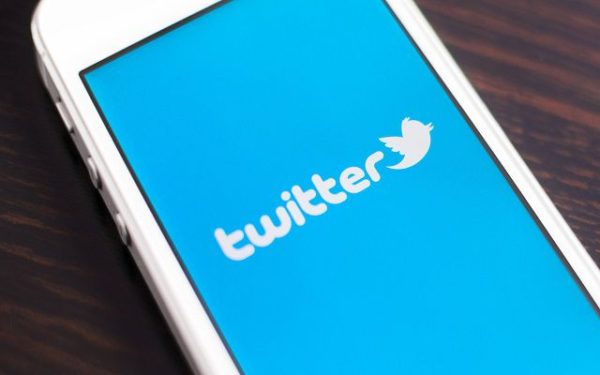

Abusive behavior
Twitter Rules: You may not engage in the targeted harassment of someone, or incite other people to do so. We consider abusive behavior an attempt to harass, intimidate, or silence someone else’s voice.
Rationale
On Twitter, you should feel safe expressing your unique point of view. We believe in freedom of expression and open dialogue, but that means little as an underlying philosophy if voices are silenced because people are afraid to speak up.
In order to facilitate healthy dialogue on the platform, and empower individuals to express diverse opinions and beliefs, we prohibit behavior that harasses or intimidates, or is otherwise intended to shame or degrade others. In addition to posing risks to people’s safety, abusive behavior may also lead to physical and emotional hardship for those affected.
Learn more about our approach to policy development and our enforcement philosophy.
When this applies
Some Tweets may seem to be abusive when viewed in isolation, but may not be when viewed in the context of a larger conversation. When we review this type of content, it may not be clear whether it is intended to harass an individual, or if it is part of a consensual conversation. To help our teams understand the context of a conversation, we may need to hear directly from the person being targeted, to ensure that we have the information needed prior to taking any enforcement action.
We will review and take action against reports of accounts targeting an individual or group of people with any of the following behavior within Tweets or Direct Messages. For accounts engaging in abusive behavior on their profile, please refer to our abusive profile policy. For behavior targeting people based on their race, ethnicity, national origin, sexual orientation, gender, gender identity, religious affiliation, age, disability, or serious disease, this may be in violation of our hateful conduct policy.
Wishing or hoping serious harm on a person or group of people
We do not tolerate content that wishes, hopes or expresses a desire for death, serious bodily harm or fatal disease against an individual or group of people. This includes, but is not limited to:
- Hoping that someone dies as a result of a serious disease e.g., “I hope you get cancer and die.”
- Wishing for someone to fall victim to a serious accident e.g., “I wish that you would get run over by a car next time you run your mouth.”
- Saying that a group of individuals deserves serious physical injury e.g., “If this group of protesters don’t shut up, they deserve to be shot.”
Unwanted sexual advances
While some consensual nudity and adult content is permitted on Twitter, we prohibit unwanted sexual advances and content that sexually objectifies an individual without their consent. This includes, but is not limited to:
- sending someone unsolicited and/or unwanted adult media, including images, videos, and GIFs;
- unwanted sexual discussion of someone’s body;
- solicitation of sexual acts; and
- any other content that otherwise sexualizes an individual without their consent.
Using aggressive insults with the purpose of harassing or intimidating others
We take action against excessively aggressive insults that target an individual, including content that contains slurs or similar language. Please also note that while some individuals may find certain terms to be offensive, we will not action against every instance where insulting terms are used.
Encouraging or calling for others to harass an individual or group of people
We prohibit behavior that encourages others to harass or target specific individuals or groups with abusive behavior. This includes, but is not limited to; calls to target people with abuse or harassment online and behavior that urges offline action such as physical harassment.
Do I need to be the target of this content for it to be reviewed for violating the Twitter Rules?
No, we review both first-person and bystander reports of such content.
Consequences
When determining the penalty for violating this policy, we consider a number of factors including, but not limited to, the severity of the violation and an individual’s previous record of rule violations.
For example, we may ask someone to delete the violating content and serve a period of time in read-only mode before they can Tweet again. Subsequent violations will lead to longer read-only periods and may eventually result in permanent suspension. If an account is engaging primarily in abusive behavior, we may permanently suspend the account upon initial review.
Source: Twitter Safety
more recommended stories
 Fentanyl Seizures at Border Continue to Spike, Making San Diego a National Epicenter for Fentanyl Trafficking
Fentanyl Seizures at Border Continue to Spike, Making San Diego a National Epicenter for Fentanyl TraffickingFentanyl Seizures at Border Continue to.
 Utah Man Sentenced for Hate Crime Attack of Three Men
Utah Man Sentenced for Hate Crime Attack of Three MenTuesday, August 8, 2023 A.
 Green Energy Company Biden Hosted At White House Files For Bankruptcy
Green Energy Company Biden Hosted At White House Files For BankruptcyAug 7 (Reuters) – Electric-vehicle parts.
 Former ABC News Reporter Who “Debunked” Pizzagate Pleads Guilty of Possessing Child pδrn
Former ABC News Reporter Who “Debunked” Pizzagate Pleads Guilty of Possessing Child pδrnFriday, July 21, 2023 A former.
 Six Harvard Medical School and an Arkansas mortuary Charged With Trafficking In Stolen Human Remains
Six Harvard Medical School and an Arkansas mortuary Charged With Trafficking In Stolen Human RemainsSCRANTON – The United States.
 Over 300 People Facing Federal Charges For Crimes Committed During Nationwide Demonstrations
Over 300 People Facing Federal Charges For Crimes Committed During Nationwide DemonstrationsThe Department of Justice announced that.
